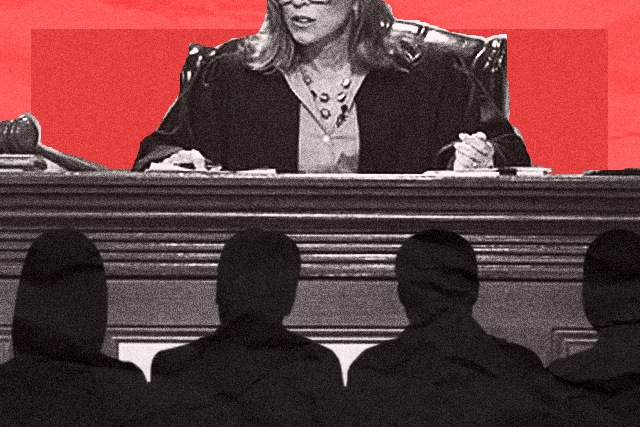
This column may contain strong language, sexual content, adult humor, and other themes that may not be suitable for minors. Parental guidance is strongly advised.
Sometimes, the courts uphold the right thing. I don’t mean the Supreme Court of the Philippines, which chose to uphold performance artist Carlos Celdran’s conviction for “offending religious feelings” during his 2010 protest at the steps of San Agustin Church. Religious feelings, it turns out, are so so easily offended, especially when the wordless protest consisted of nothing more than Celdran dressed in a black suit and hat holding up a sign that said “DAMASO.”
Remember when religious feelings were so easily hurt by pedophile priests sexually molesting young boys and girls in the schools or parishes they were assigned to? Me neither. Instead of feeling outrage at the abusive priests, the church often prefers to cover up the abuse by reassigning the offending priest to other parishes, where under the guise of spiritual guidance, he preys once more on trusting children and teens.
Fortunately, one court in Australia did the right thing last July and found the archbishop of Adelaide, Philip Wilson, guilty of concealing child abuse, and sentenced him to 12 months in prison. He had been aware since the 1970s that a pedophile priest, James Fletcher, had been abusing altar boys, but failed to report it to police.
And a court in the United States rightly turned down Brock Turner, aka the Stanford rapist, who was convicted of sexual assault after he was discovered assaulting an unconscious woman behind a dumpster after a college party two years ago. While the judge who presided over his first trial acknowledged the guilty verdict delivered by a jury, Turner was sentenced to a mere six months, and released after serving only three months.
There’s little doubt that white privilege played a significant part in Turner’s shockingly lenient sentence. The judge—who has since been voted out of office after a recall campaign—almost certainly saw a life full of potential going to waste because of “20 minutes of action,” as Turner’s father put it. After all, here was a future Olympic swimmer, Stanford student, a “good boy” from a wealthy family. Clearly the thought process behind this was, it was “just” rape, and besides, the girl was drunk and would have been asking for it. Clearly there was scant consideration to the trauma the victim continues to endure. If anyone’s feelings were gravely offended, they were hers.
Though he had been expelled from Stanford—and rightly so—and though he remains a registered sex offender, and though he appears in a college textbook under the definition of rape/rapist, he still obviously felt privilege was on his side when he launched his appeal, hoping to get his multiple convictions overturned.
He had the gall to argue that because he hadn’t actually penetrated the woman he assaulted with his penis, but with a foreign object as well as digitally, technically, there was no intercourse. What had occurred instead, his lawyer Eric Multhaup argued, was “outercourse,” since he had his pants on.
Multhaup also posited that Turner was even being considerate of the victim. The Guardian reported that Multhaup presented the view that his client was “not attempting rape;” instead he was seeking “outercourse,” which could be thought of as “sexual contact while clothed,” an activity that didn’t involve vaginal sex and was actually a “version of safe sex.”
Oh, that Brock Turner is such a sweet boy. Didn’t his parents raise him right after all? When they gave him “the talk” about “the birds and the bees,” they must have also told him to respect the girl he was raping by keeping his pants on and assaulting her with a foreign object instead.
To continue to insult the woman he had so violently assaulted by minimizing his crime and expect to get away with it by reducing it to “outercourse” is downright disgusting. It reeks of an appalling lack of accountability, coupled with an astounding sense of privilege. There is a cartoon commentary that pokes fun of the Turner’s lenient sentence, portraying the judge as berating the victim: “Do you mind? This young man is trying to move on with his life and your trauma is distracting him.”
It’s the height of male privilege to value your being labelled—and convicted—a rapist as far more uncomfortable than the trauma of the woman you sexually violated, and whose life you destroyed. It’s the height of male privilege to consider that the shame of being called a sex offender is more important than the offense itself. There wouldn’t be rapists if men didn’t rape, period.
Thankfully, the appeals court was not swayed by Turner’s bullshit. “The fact that defendant was engaging in a different sexual act at the time the encounter was interrupted (namely, ‘dry humping’) does not foreclose the inference that he intended, ultimately, to rape,” wrote one of the three appeals court judges who heard the case. All three judges were unanimous in their opinion. “Neither the evidence nor common sense supports defendant’s contention that ‘dry humping’ is mutually exclusive to intercourse.”
Now if only we could have equally sensible judges in this country, too. And that includes Supreme Court judges.
B. Wiser is the author of Making Love in Spanish, a novel published by Anvil Publishing and available in National Book Store and Powerbooks, as well as online. When not assuming her Sasha Fierce alter-ego, she takes on the role of serious journalist and media consultant.
For comments and questions, e-mail [email protected].
Disclaimer: The views expressed here are solely those of the author in her private capacity and do not in any way represent the views of Preen.ph, or any other entity of the Inquirer Group of Companies.
Art by Marian Hukom
For the latest in culture, fashion, beauty, and celebrities, subscribe to our weekly newsletter here.
Follow Preen on Facebook, Instagram, Twitter, YouTube, and Viber
Related stories:
A call out to Brock Turner’s ‘outercourse’ bullsh*t
Harvey Weinstein still plans to plea ‘not guilty’ after receiving rape charges
Brock Turner is now a textbook example of rape
How rape culture starts with simple words


